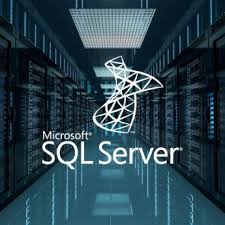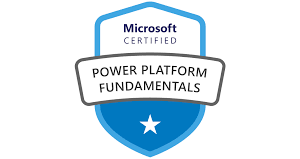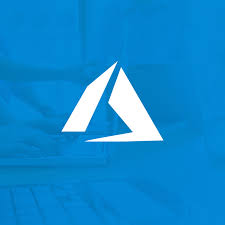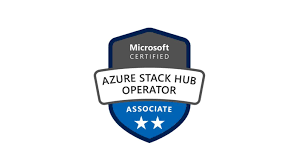Module 1: Introduction to Data Warehousing
This module provides an introduction to the key components of a data warehousing solution and the high-level considerations you must take into account when you embark on a data warehousing project.
Lessons
• Overview of Data Warehousing
• Considerations for a Data Warehouse Solution
Lab: Exploring a Data Warehousing Solution
After completing this module, you will be able to:
• Describe the key elements of a data warehousing solution
• Describe the key considerations for a data warehousing project
Module 2: Data Warehouse Hardware Considerations
This module discusses considerations for selecting hardware and distributing SQL Server facilities across servers.
Lessons
• Considerations for building a Data Warehouse
• Data Warehouse Reference Architectures and Appliances
Lab: Planning Data Warehouse Infrastructure
After completing this module, you will be able to:
• Describe key considerations for BI infrastructure.
• Plan data warehouse infrastructure.
Module 3: Designing and Implementing a Data Warehouse
This module describes the key considerations for the logical design of a data warehouse, and then discusses best practices for its physical implementation.
Lessons
• Logical Design for a Data Warehouse
• Physical design for a data warehouse
Lab: Implementing a Data Warehouse Schema
After completing this module, you will be able to:
• Describe a process for designing a dimensional model for a data warehouse
• Design dimension tables for a data warehouse
• Design fact tables for a data warehouse
• Design and implement effective physical data structures for a data warehouse
Module 4: Creating an ETL Solution with SSIS
This module discusses considerations for implementing an ETL process, and then focuses on Microsoft SQL Server Integration Services (SSIS) as a platform for building ETL solutions.
Lessons
• Introduction to ETL with SSIS
• Exploring Data Sources
• Implementing Data Flow
Lab: Implementing Data Flow in an SSIS Package
After completing this module, you will be able to:
• Describe the key features of SSIS.
• Explore source data for an ETL solution.
• Implement a data flow by using SSIS
Module 5: Implementing Control Flow in an SSIS Package
This module describes how to implement ETL solutions that combine multiple tasks and workflow logic.
Lessons
• Introduction to Control Flow
• Creating Dynamic Packages
• Using Containers
• Managing Consistency
Lab: Implementing Control Flow in an SSIS Package
Lab: Using Transactions and Checkpoints
After completing this module, you will be able to:
• Implement control flow with tasks and precedence constraints
• Create dynamic packages that include variables and parameters
• Use containers in a package control flow
• Enforce consistency with transactions and checkpoints
Module 6: Debugging and Troubleshooting SSIS Packages
This module describes how you can debug packages to find the cause of errors that occur during execution. It then discusses the logging functionality built into SSIS that you can use to log events for troubleshooting purposes. Finally, the module describes common approaches for handling errors in control flow and data flow.
Lessons
• Debugging an SSIS Package
• Logging SSIS Package Events
• Handling Errors in an SSIS Package
Lab: Debugging and Troubleshooting an SSIS Package
After completing this module, you will be able to:
• Debug an SSIS package
• Implement logging for an SSIS package
• Handle errors in an SSIS package
Module 7: Implementing a Data Extraction Solution
This module describes the techniques you can use to implement an incremental data warehouse refresh process.
Lessons
• Planning Data Extraction
• Extracting Modified Data
Lab: Extracting Modified Data
After completing this module, you will be able to:
• Plan data extraction
• Extract modified data
Module 8: Loading Data into a Data Warehouse
This module describes the techniques you can use to implement a data warehouse load process.
Lessons
• Planning Data Loads
• Using SSIS for Incremental Loads
• Using Transact-SQL Loading Techniques
Lab: Loading a Data Warehouse
After completing this module, you will be able to:
• Describe the considerations for planning data loads.
• Use SQL Server Integration Services (SSIS) to load new and modified data into a data warehouse.
• Use Transact-SQL techniques to load data into a data warehouse.
Module 9: Enforcing Data Quality
Ensuring the high quality of data is essential if the results of data analysis are to be trusted. SQL Server 2014 includes Data Quality Services (DQS) to provide a computer-assisted process for cleansing data values, as well as identifying and removing duplicate data entities. This process reduces the workload of the data steward to a minimum while maintaining human interaction to ensure accurate results.
Lessons
• Introduction to Data Quality
• Using Data Quality Services to Cleanse Data
• Using Data Quality Services to Match Data
Lab: Cleansing Data
Lab: Deduplicating Data
After completing this module, you will be able to:
• Describe how DQS can help you manage data quality.
• Use DQS to cleanse your data.
• Use DQS to match data.
Module 10: Master Data Services
Master Data Services provides a way for organizations to standardize and improve the quality, consistency, and reliability of the data that guides key business decisions. This module introduces Master Data Services and explains the benefits of using it.
Lessons
• Introduction to Master Data Services
• Implementing a Master Data Services Model
• Managing Master Data
• Creating a Master Data Hub
Lab: Implementing Master Data Services
After completing this module, you will be able to:
• Describe the key concepts of Master Data Services.
• Implement a Master Data Services model.
• Use Master Data Services tools to manage master data.
• Use Master Data Services tools to create a master data hub.
Module 11: Extending SQL Server Integration Services
This module describes the techniques you can use to extend SSIS. The module is not designed to be a comprehensive guide to developing custom SSIS solutions, but to provide an awareness of the fundamental steps required to use custom components and scripts in an ETL process, based on SSIS.
Lessons
• Using Scripts in SSIS
• Using Custom Components in SSIS
Lab: Using Custom Scripts
After completing this module, you will be able to:
• Include custom scripts in an SSIS package.
• Describe how custom components can be used to extend SSIS.
Module 12: Deploying and Configuring SSIS Packages
Microsoft SQL Server Integration Services (SSIS) provides tools that make it easy to deploy packages to another computer. The deployment tools also manage any dependencies, such as configurations and files that the package needs. In this module, you will learn how to use these tools to install packages and their dependencies on a target computer.
Lessons
• Overview of SSIS Deployment
• Deploying SSIS Projects
• Planning SSIS Package Execution
Lab: Deploying and Configuring SSIS Packages
After completing this module, you will be able to:
• Describe considerations for SSIS deployment.
• Deploy SSIS projects.
• Plan SSIS package execution.
Module 13: Consuming Data in a Data Warehouse
This module introduces BI, describing the components of Microsoft SQL Server that you can use to create a BI solution, and the client tools with which users can create reports and analyze data.
Lessons
• Introduction to Business Intelligence
• Enterprise Business Intelligence
• Self-Service BI and Big Data
Lab: Using a Data Warehouse
After completing this module, you will be able to:
• Describe BI and common BI scenarios.
• Describe how a data warehouse can be used in enterprise BI scenarios.
• Describe how a data warehouse can be used in self-service BI scenarios.







Reviews
There are no reviews yet.